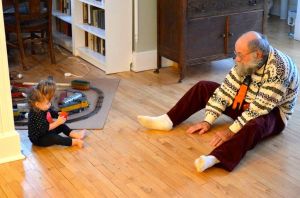In response to my soliciting suggestions for improving my Experimental Social Psychology class last semester, one of my students suggested that …”if the class were to have many online assignments, I believe it would be extremely beneficially to teach students how to install software that temporarily restrains them from surfing distracting websites while studying. There are several free programs which can be easily set up in order to increase focus and productivity while completing online homework.” This got me reflecting on how the Internet has challenged my own ability to focus as I sit down tonight to read a book in preparation for reviewing it. Here’s where my distractions led me before setting down! Thanks for the suggestion AW!
- Freedom
- 99U
- Profhacker
- Illusion of Internet Freedom
- Mashable
- Slate: Freedom from Distractions
- Make Use of: End of the Internet
- NY Times Your Brain on Computers
- That’s all folks!
Time to reflect upon all this and to read Howard Gardner and Katie Davis






